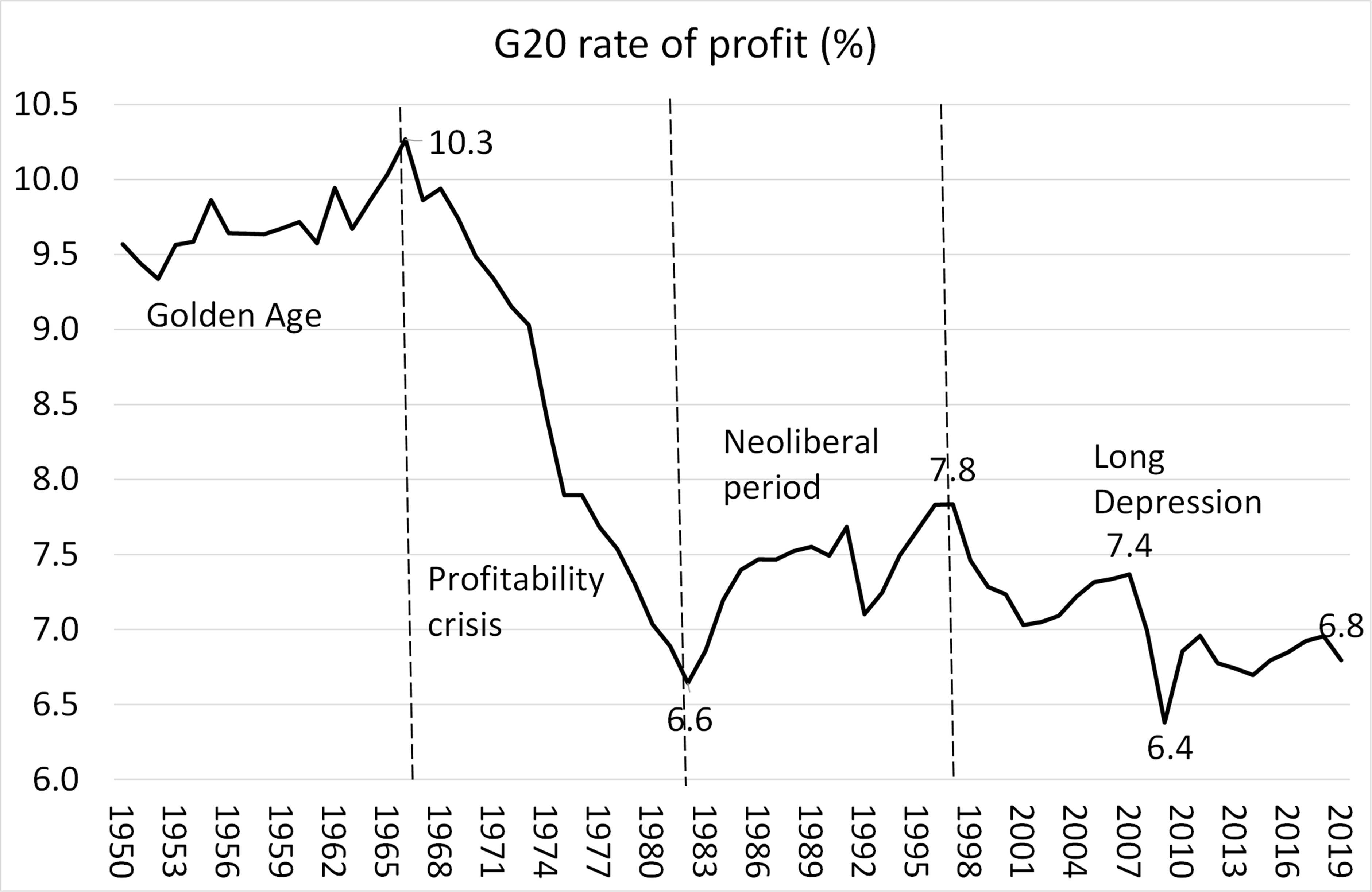Coming on the heels of the Calgary, Alberta encampment dismantling: cops at the university of Alberta in Edmonton have also cleared the encampment located there.

Police raided at dawn when most people had gone home, approx 25 people were at the camp at the time and a handful of arrests.

 )
) bourgeois are, the petty bourgeois really are the most snivelling class
bourgeois are, the petty bourgeois really are the most snivelling class
The early 1970s marks a downturn of the rate of profit which the US has not been able to escape, only delay through a neoliberal turn, increasing financialisation etc. by and large I feel that the rise and fall of a hegemon can't be overly simplified but if you're gonna go by a quick and dirty rule I think that one suffices.